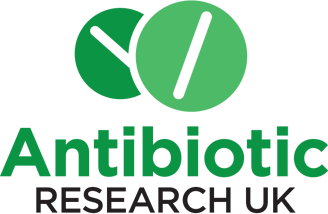
The Problem
People are dying from common, previously treatable infections because the bacteria that cause them have become resistant to treatment. Some microbes have already developed resistance to all known antibiotics, meaning previously curable diseases have become untreatable. For example, the bacterium N. gonorrhoea (which causes gonorrhoea) and the “super bug” commonly referred to as MRSA (which has become an acute problem in hospitals) are now almost always resistant to penicillin and other common antibiotics.
The germs that cause infections adapt and change over time, meaning that they can develop the ability to defeat the medicines designed to kill them. The discovery of penicillin almost a hundred years ago transformed medicine. But without enough new antibiotics in the pipeline, we face a grave danger that is already undermining modern medicine.
Antibiotic resistance is the hidden pandemic undermining modern medicine. Find out more and join the fight to keep antibiotics working.
Every year, hundreds of people with drug-resistant infections contact Antibiotic Research UK. They talk about the helplessness, fear and dread they feel when they’ve run out of antibiotics to try. Their lives have been turned upside down, they’ve lost jobs, and they can’t look after themselves. Members of our patient support team see first-hand what a threat drug-resistant infections are to modern medicine and to people’s lives.

Photo: © WHO / Nazik Armenakyan

“Tackling antibiotic resistance is one of the most urgent global health challenges of our time,” says Dr Tina Joshi, Lecturer in Molecular Microbiology at the University of Plymouth and a member of Antibiotic Research UK’s Science Committee.
The lack of new antibiotics and the growing microbial resistance puts us all at risk. Nearly every medical procedure, from cancer treatment and organ transplantation to caesarean section and hip or joint replacement, is dependent on effective antibiotics.
The hidden pandemic is already here
As microbes continue to evolve resistance, we face a growing chance that even a minor cut could become deadly. It’s not just a future threat: at least 1.3 million people (more than the population of Edinburgh and Bristol put together) were killed worldwide by infections that were resistant to antibiotics in 2019, according to the most comprehensive report to date on the global impact of antimicrobial resistance, published January 2022 in The Lancet.
“Covid-19 is just a warm up for what could happen if we don’t sort out antimicrobial resistance,” Jim O’Neil told the Financial Times when the Lancet study was published. He is well placed to know: as a crossbench peer and former treasury minister, O’Neil led a major review into antimicrobial resistance published in 2016.
The victims of antimicrobial resistance have too often remained invisible. Their death certificates rarely list “antibiotic resistance”. The official cause of death is usually attributed to the disease or injury the patient suffered from, rather than the resistant microbes that failed to respond to treatment. Antimicrobial resistance has been operating for too long in the shadows, causing prolonged infections and death.

Stephen Cottrell, the Archbishop of York, has become a Patron of Antibiotic Research UK to help cast a light on this hidden pandemic. “The current COVID pandemic has highlighted our lack of preparedness for a devastating infectious disease and the importance of doing all we can to limit antibiotic resistance in the future,” he says.

Together, we can save modern medicine
“Living with an antibiotic resistant infection can be very scary, and it can leave me feeling isolated from others,” says patient ambassador Lisa Jones.
Lisa has endured a lifetime of lung infections and suffers from skin and tissue infection around the peg feeding tube. She found out about Antibiotic Research UK’s patient support services three years ago and got in touch. “With the patient support service from Antibiotics Research UK, I have access to help and support from someone who understands what I’m going through. And it makes me a better patient, as I can find help and knowledge when I need it. I can’t thank the patient support services enough for everything they do for me.”
What can I do to help?
We can all make a difference if we act now. We all have a role to play to protect ourselves, friends, family and future generations from drug-resistant infections.
Join the fight to keep antibiotics working and support those struggling with antibiotic-resistant infections.
What else can I do?
Personal behavior: Find information on how to use antibiotics wisely.
Take part in an event or create your own.
Share this campaign on Twitter, Facebook and Instagram using the hashtag #HiddenPandemic. Tag @1Antruk on twitter for a reshare.
